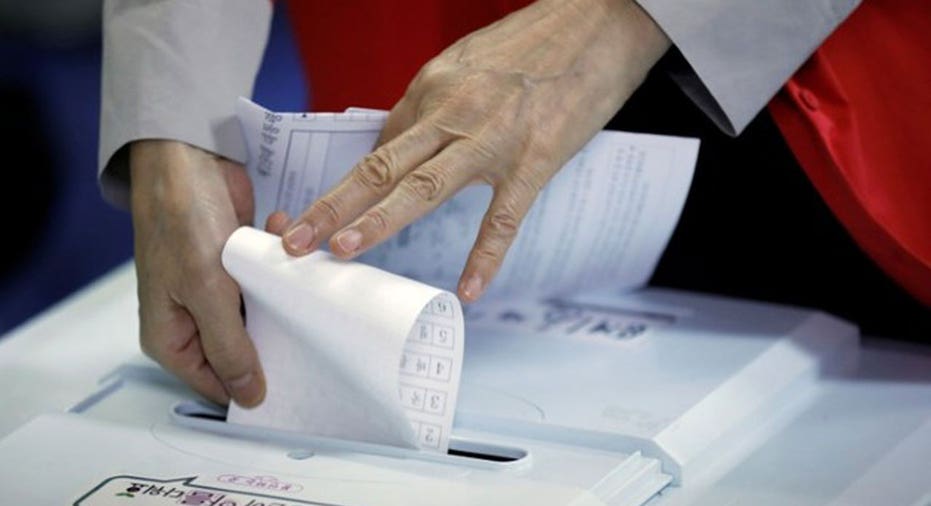Liberal Moon Jae-in Expected to Win South Korea's Presidency: Exit Polls

Liberal politician Moon Jae-in is expected to win South Korea's presidential election on Tuesday, exit polls showed, an expected victory that would end nearly a decade of conservative rule and bring a more conciliatory approach toward North Korea.
Moon, 64, is expected to beat conservative challenger, former prosecutor Hong Joon-pyo, by 41.4 percent to 23.3 percent of the votes, exit polls conducted jointly by three network television stations showed.
If his win is confirmed, Moon of the main opposition Democratic Party would replace Park Geun-hye, who was impeached in December by parliament over a sweeping corruption scandal.
The Constitutional Court upheld her parliamentary impeachment in March, making her the first democratically elected leader to be removed from office and triggering a snap election to choose her successor.
A Gallup Korea poll last week showed Moon had 38 percent support in a field of 13 candidates.
Moon favors dialogue with North Korea to ease rising tension over its accelerating nuclear and missile program. He also wants to reform powerful family-run conglomerates, such as Samsung and Hyundai, and boost fiscal spending to create jobs.
Moon, who narrowly lost to Park in the last presidential election, in 2012, has criticized the two former conservative governments for failing to stop North Korea's weapons development. He advocates a two-track policy of dialogue while maintaining pressure and sanctions to encourage change.
He said in a YouTube live stream on Tuesday South Korea should take on a more active diplomatic role to curb North Korea's nuclear threat and not watch idly as the United States and China talk to each other.
If his victory is confirmed, Moon will be sworn in on Wednesday after the release of the official result. Most candidates, including Moon and Ahn, have said they would skip a lavish inauguration ceremony and start work straight away.
The new leader is expected to quickly name a prime minister, who will need parliamentary approval, and main cabinet positions, including national security and finance ministers, which do not need parliamentary confirmation.
(Reporting by Ju-min Park, Se Young Lee, Cynthia Kim and Jack Kim in SEOUL; Writing by Soyoung Kim; Editing by Robert Birsel)



















